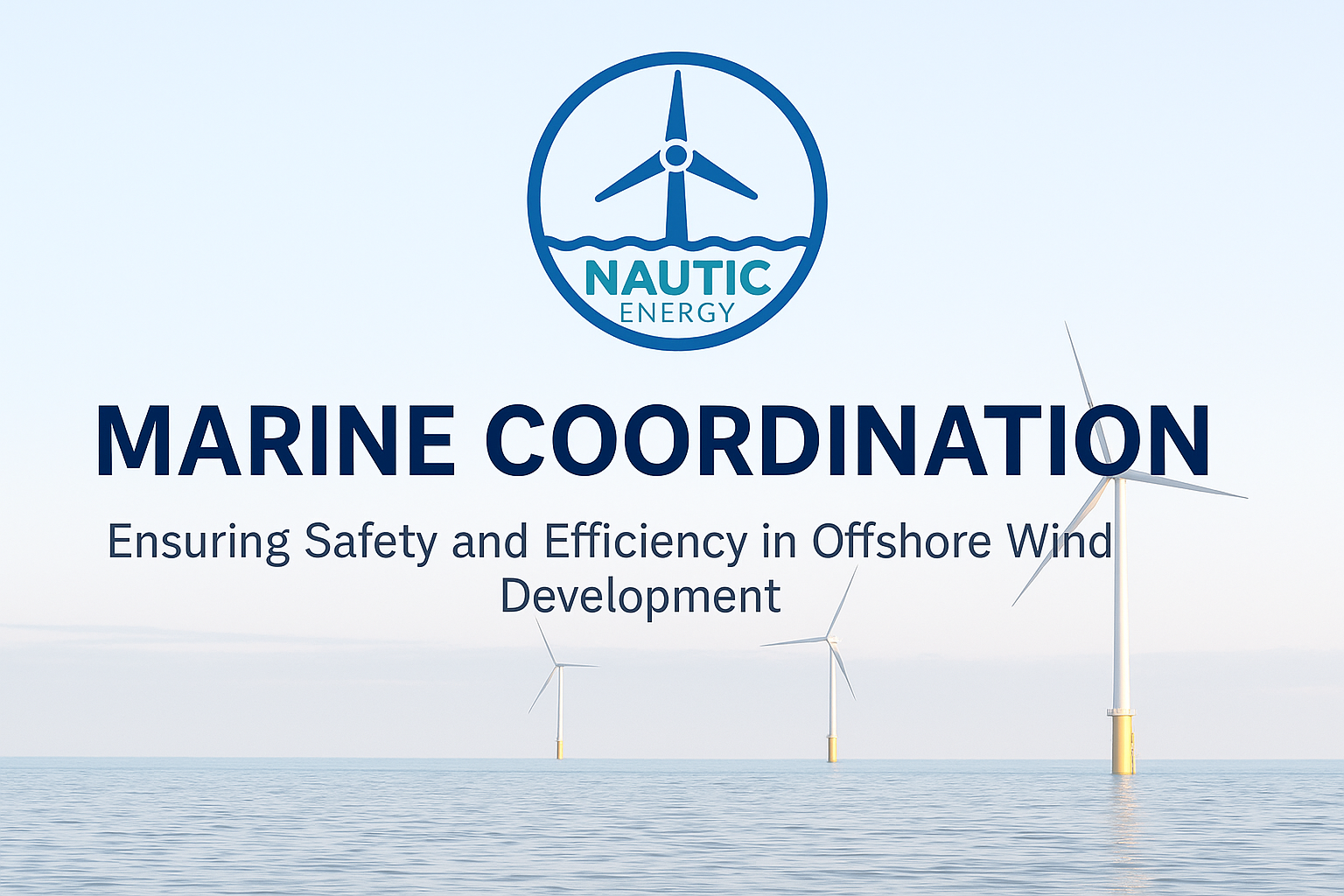Marine Coordination Why It’s Critical to Safe & Efficient Operations
🌊 Marine Coordination in Offshore Wind: Why It’s Critical to Safe & Efficient Operations
As the offshore wind industry expands globally, the complexity of managing large-scale marine operations has grown in tandem. One of the most vital roles in ensuring project success — yet often behind the scenes — is Marine Coordination.
At Nautic Energy, Marine Coordination is not just a logistical role. It's the command centre of safety, oversight, and operational fluidity during construction, commissioning, and maintenance of offshore wind farms.
⚓ What Is Marine Coordination?
Marine Coordination refers to the centralised management and control of all offshore vessel and personnel movements on a wind farm project. It ensures every operation at sea — from transferring technicians to moving heavy-lift vessels — is executed safely, efficiently, and in full compliance with regulatory and client standards.
Why Is It Important?
Marine Coordination is essential because offshore projects involve:
Multiple contractors operating simultaneously (SIMOPS)
Vessels ranging from Crew Transfer Vessels (CTVs) to cable-laying ships
Harsh, dynamic weather conditions
Dozens, sometimes hundreds, of offshore personnel each day
Without proper coordination, the risks of accidents, delays, or costly downtime increase significantly.
Key Functions of a Marine Coordinator
At Nautic Energy, our Marine Coordinators carry out a range of critical tasks, including:
1. Vessel Traffic Management
We monitor and manage all vessel movements using advanced systems like SeaPlanner VTMS, ensuring traffic separation, safety zone enforcement, and optimized access to assets like turbines and substations.
2. Live Personnel Tracking
Every person offshore is tracked in real-time. Coordinators know who is on which vessel, which turbine, and for how long — an essential part of emergency response planning.
3. Radio Communications
We maintain constant communication across marine VHF, TETRA, or digital radio networks — ensuring real-time coordination with marine crews, transfer vessels, and site teams.
4. Safety and Compliance Oversight
We enforce exclusion zones around construction areas, confirm certifications for vessels and personnel, and maintain audit-ready records.
5. Emergency Response
In the event of an incident, the Marine Coordinator is the first to respond — triggering protocols, notifying stakeholders, and supporting recovery operations.
Tools of the Trade
We rely on integrated digital systems like SeaPlanner to provide:
Real-time vessel tracking
Permit-to-work management
Certificate validation
Weather data integration
Reporting and audit logs
These systems enhance both the safety and efficiency of the wind farm lifecycle.
Final Thoughts 💬
Marine Coordination is the heartbeat of offshore operations. When done well, it reduces downtime, improves safety outcomes, and ensures your project stays on course — regardless of the challenges at sea.
At Nautic Energy, we bring two decades of hands-on experience in offshore wind operations across the UK, Europe, and Asia. Our coordinators are former mariners, construction managers, and marine control specialists — combining technical know-how with situational awareness to keep projects running safely and smoothly.
Want to learn how Nautic Energy can support your next offshore campaign?
Contact us today or explore our Marine Services to learn more.

